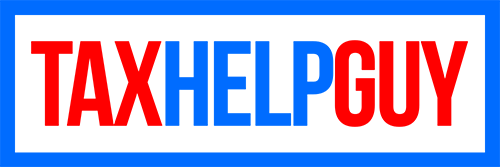Tax liens and levies are among the most serious collection actions the IRS can take. If you're facing a tax lien or levy in Victorville or Apple Valley, CA, immediate action is required to protect your assets and financial future.
🚨 URGENT: Tax Lien or Levy?
If you owe back taxes, you should really talk to me. Tax liens and levies don't happen overnight - they're the result of unpaid tax debt. We can help stop collection actions and find a solution.
Under an audit? Definitely talk to me. Audits can lead to tax assessments, which can then lead to liens and levies. Get professional help before it escalates.
Call (760) 249-7680 NOWWhat is a Tax Lien?
A tax lien is the IRS's legal claim against your property when you fail to pay your tax debt. The IRS files a Notice of Federal Tax Lien, which:
- Becomes public record
- Damages your credit score
- Makes it difficult to sell property
- Prevents you from getting loans
- Can affect your ability to do business
What is a Tax Levy?
A tax levy is the actual seizure of your property to satisfy tax debt. The IRS can levy:
- Bank Accounts - Freeze and seize funds
- Wages - Wage garnishment
- Property - Real estate, vehicles, equipment
- Social Security Benefits - Up to 15%
- Retirement Accounts - IRAs, 401(k)s
- Accounts Receivable - Money owed to you
⚠️ Tax Levies Happen Quickly
Once the IRS issues a levy, they can seize your assets within days. If you've received a Final Notice of Intent to Levy, you have very little time to act. Contact us immediately.
The Difference Between Liens and Levies
Tax Lien: A claim against your property (doesn't take it yet)
Tax Levy: The actual seizure of your property (takes it now)
Liens typically come first. If you don't resolve the lien, the IRS can escalate to levies.
How to Stop a Tax Levy
You can stop a tax levy by:
1. Paying the Tax Debt in Full
If you can pay the full amount immediately, the levy will be released.
2. Entering a Payment Plan
Setting up an installment agreement can stop levies. We can negotiate payment plans that work for your situation.
3. Requesting Currently Not Collectible Status
If you can't afford to pay, we can request CNC status, which temporarily stops collection.
4. Filing an Offer in Compromise
Settling your tax debt for less than you owe can resolve liens and levies.
5. Requesting a Levy Release
We can request immediate release of a levy if it's causing economic hardship.
How to Remove a Tax Lien
Tax liens can be removed through:
Lien Release
When you pay your tax debt in full, the IRS releases the lien within 30 days.
Lien Withdrawal
The IRS can withdraw a lien (removes it from public record) if:
- You enter a payment plan
- You file an Offer in Compromise
- The lien was filed in error
Lien Discharge
Release a lien from specific property, allowing you to sell it while the lien remains on other property.
Lien Subordination
Allow other creditors to have priority over the IRS lien, often necessary for refinancing.
Wage Garnishment
If the IRS garnishes your wages, they can take:
- A significant portion of each paycheck
- Your employer is required to comply
- This continues until the debt is paid or resolved
We can help stop wage garnishment by negotiating payment arrangements or other solutions.
Bank Account Levies
When the IRS levies your bank account:
- Your account is frozen
- The bank holds funds for 21 days
- After 21 days, funds are sent to the IRS
- You can't access your money during this time
We can help release bank levies quickly, especially if it causes economic hardship.
Your Rights During Collection
You have rights when facing liens and levies:
- Right to Notice - The IRS must notify you before levying
- Right to Appeal - You can appeal collection actions
- Right to Hardship - Economic hardship can stop collection
- Right to Representation - You can have a professional represent you
Preventing Liens and Levies
The best way to avoid liens and levies is to resolve tax debt early:
- Respond to IRS notices immediately
- Set up payment arrangements
- File all required tax returns
- Don't ignore the IRS
Don't Let Liens and Levies Destroy Your Finances
If you owe back taxes, you should really talk to me. The IRS will escalate to liens and levies if you don't resolve your tax debt. We can help stop collection actions and find a solution.
We serve Victorville, Apple Valley, Hesperia, and all High Desert communities. Our experienced team has helped hundreds of taxpayers resolve liens and levies.
Call (760) 249-7680 for Immediate HelpWhat We Can Do
- Stop tax levies immediately
- Release bank account levies
- Stop wage garnishments
- Remove tax liens
- Negotiate payment plans
- File Offers in Compromise
- Request hardship status
Time is Critical
When facing liens and levies, time is critical. The longer you wait, the more damage is done. Contact us immediately if:
- You've received a Notice of Federal Tax Lien
- You've received a Final Notice of Intent to Levy
- The IRS has already levied your accounts or wages
- You're facing collection actions
Get Help Today
If you're facing tax liens or levies in Victorville or Apple Valley, don't wait. Contact Tax Help Guy immediately for urgent assistance.
Contact Information:
Apple Valley Office: 18188 Symeron Road, Apple Valley, CA 92307
Phone: (760) 249-7680
Serving Victorville, Apple Valley, and all High Desert communities

